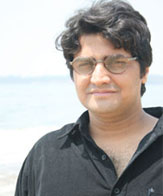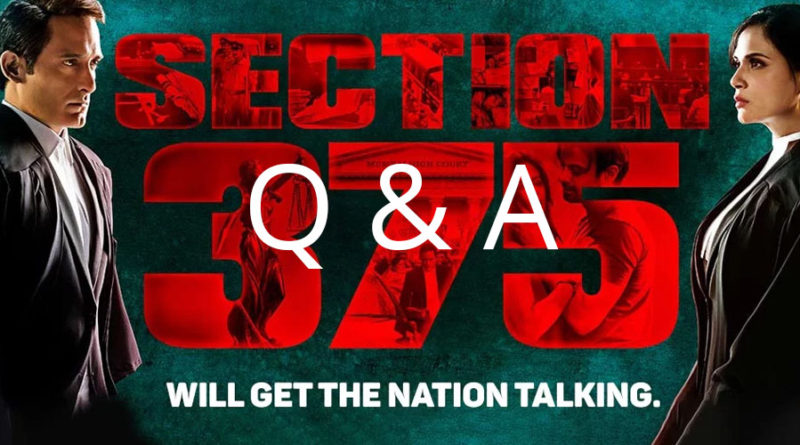Section 375’s Writer – Manish Gupta in conversation with #IAmBuddha

1.What inspired you to make section 375, who is your target audience for this movie and why you made this movie?
The Shiney Ahuja case inspired me to make this movie. In 2009, I was supposed to direct a film with Shiney Ahuja.
So I used to visit his house at Oshiwara to meet him & his wife Anupam (who was his manager too). They had a young maid servant named Madhuri who’d serve me water, etc. One evening, I heard that Shiney has been arrested for the rape of this girl. I rushed to the Oshiwara police station where the DCP told me, “We’ve established intercourse, but we are not sure where it was consensual or forced” So I said to the DCP that if by your admission, if you are not sure whether it’s a rape, why have you kept Shiney in custody?
The DCP said, “That’s the law. The girl has complained that she’s been raped. So we are compelled by law to arrest the accused”
This incident destroyed Shiney’s career and his life. But what was the truth? When I visited Shiney’s wife Anupam, she explained to me that the DNA report in India is not foolproof and is highly prone to error. There are various chemical procedures involved across many laboratories. Plus, the police can’t be relied on, their investigation is shoddy. But when I read the girl’s statement in the charge-sheet, it sent a chill down my spine. She’d described her ordeal with great pain. Now, I didn’t know what to believe. This ambiguity created a strong urge in me to make a movie on the ambivalence of Rape Laws. The target audience is clearly – multiplex-goers. It’s an urban, thinking man’s film, it’s rather intellectual.
2.Do you think this type of movies are need of our time in order to understand the rape victims, will it change the way rape victims and accused are shown in the news and media?
Absolutely. It’ll make an impact on the way rape accused and rape survivors are perceived. Not all accused are guilty. And not all survivors are speaking the truth. While a heinous crime like rape is on the rise, there are a large number of fake rape cases being registered all the time. The worst affected by fake rape cases are women themselves, because the alarming number of fake rape cases cast a shadow of doubt over the testimony of genuine rape survivors.
3.We find in the movie, there are some bold dialogues and direct questions. Do you think will it create a controversy? If yes, then how did you manage it?
The movie was bound to spark off a debate. But since there’s no vulgarity and the dialogues are clinical and scientific, I do not see a serious backlash.
4.Have you compromised the real stories or tried to balance it in order to play safe?
I’ve used the real story of Shiney Ahuja (and to some extent Madhur Bhandarkar) as a base. But then, I’ve added layer upon layer of facts from other cases to make the story interesting.
5.Have the actors justified the role they were playing in the film?
Yes, the casting done by Apurva Singh Rathore is brilliant.
6.What message would you like to give to Young Buddhas (your audience) through section 375?
Let us not forget the story of ‘CRY WOLF’ in the modern era.
7.What was the most challenging part of the movie, research, casting or to deliver intended message to the society on such a sensitive topic?
Firstly, the back-breaking research and Scripting. It took me three years to research and write the Script. I attended 160 hearings at the Sessions court at Kala Ghoda. I met lawyers, judges, rape accused, survivors and analysed their varied points-of-view. Scripting such a sensitive subject was very tricky. Balancing the two sides without coming across as either overly feminist or misogynistic was very difficult. I had to make the script unbiased.
8.After TheTashkentFiles, this is the 2nd research based movie, do you think #RighToTruth has started and can we expect more research based movies in bollywood?
Absolutely! And Hightime.


